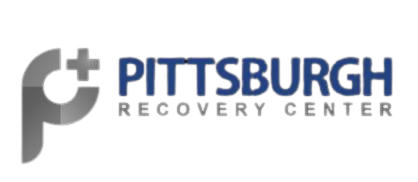Find out why our Pittsburgh women’s rehab program is your best choice for tailored care.

Substance abuse and addiction continue to be significant public health issues in the United States, affecting millions of individuals and families. Among the populations grappling with this crisis, women represent a unique and complex demographic. The nature and consequences of addiction vary considerably between men and women due to biological, social, and psychological factors. Women face specific challenges that can exacerbate the impact of substance abuse and make the path to recovery particularly arduous.
Research has shown that women who suffer from addiction often experience different progression patterns and consequences than men. For example, women are more likely to use substances as a coping mechanism for emotional distress, and they may progress from using to dependency more quickly. Moreover, women frequently encounter societal stigma and gender-specific barriers that make accessing and succeeding in treatment even more difficult. Understanding these nuances is essential for developing effective intervention strategies tailored to women’s needs.


In IOP level of care, you attend therapy, learn to maintain sobriety, and develop a supportive peer network to begin transitioning into a lifelong recovery program.

Outpatient therapy is an ideal option for people who are motivated to maintain abstinence. OP treatment involves a combination of group counseling & advanced recovery skills.
Women seeking treatment for substance use disorders have unique needs that must be addressed for treatment to be effective. Some of these needs include:
Women may face gender-specific medical issues related to substance abuse, such as increased susceptibility to liver disease, cardiovascular issues, and the potential impacts on reproductive health, including complications during pregnancy. Comprehensive treatment must include gender-informed medical care that addresses these specific health concerns.
Women often enter treatment with histories of trauma, including domestic violence, sexual abuse, or other forms of relational trauma. These experiences can significantly affect their addiction and recovery process. Treatment programs must incorporate trauma-informed care to address these past experiences and their impact on substance use.
Co-occurring mental health disorders are prevalent among women with substance use disorders. Conditions like anxiety, depression, PTSD, and eating disorders often require concurrent treatment. Integrated approaches that address both substance use and mental health are crucial for successful recovery.
Women are often primary caregivers of children or other family members, adding layers of complexity to their treatment needs. Support for childcare and family therapy options are essential to help women manage their responsibilities while undergoing treatment.
Women may face societal stigma and differing social expectations that impact their willingness to seek help. Gender-specific programs can provide a safe and supportive environment free from judgment, where women can address these societal impacts and find strength in shared experiences.
Pittsburgh Recovery Centers (PRC) offers a specialized Women’s Drug Rehab Program designed to address these unique needs and promote comprehensive and lasting recovery for women. Here’s what you can expect when you seek treatment at PRC:
Upon entering the program, each woman undergoes a thorough assessment to determine the nature and extent of their substance use, medical history, mental health status, and individual circumstances. This assessment forms the basis of a personalized treatment plan tailored to meet each woman’s specific needs, taking into account physical health, psychological support, social situation, and personal goals.
For those who require it, PRC offers medically supervised detoxification services. This process ensures that withdrawal is managed safely and comfortably, with medical professionals available to address any complications.
Recognizing the significant impact of trauma on many women with addiction, PRC integrates trauma-informed care into its therapy offerings. This approach acknowledges past traumas and provides a safe space for women to process these experiences, facilitating deeper healing.
PRC offers specialized dual diagnosis services for women dealing with both substance use and mental health disorders. This integrated approach ensures that women receive comprehensive care that addresses all aspects of their mental and physical health.
Beyond traditional therapy, PRC incorporates holistic therapies such as yoga, meditation, art therapy, and mindfulness practices. These activities help women find new, healthy ways of coping with stress and emotions, promoting overall wellness.
Understanding that many women are primary caregivers, PRC provides family therapy sessions and parenting support. These services aim to rebuild family relationships, improve communication, and support women in their roles within their families.
Long-term recovery requires ongoing support. PRC emphasizes relapse prevention through education and skill-building and assists women in developing a robust aftercare plan. This plan includes continued therapy, support groups, and other resources to help women maintain their sobriety after leaving the program.
One of the standout features of PRC’s Women’s Drug Rehab Program is its women-only environment. This setting fosters a sense of community and safety, encouraging women to open up and share their experiences without the fear of judgment or discomfort that might arise in mixed-gender settings.
A women-only environment provides a safe space free of potential triggers or undue attention from men. This setting can help women feel more comfortable and focused on their recovery efforts.
Being surrounded by other women who have similar experiences can foster a sense of solidarity and peer support. Women can gain strength from sharing their stories, challenges, and successes with others who truly understand their journey.
Gender-specific programs can dive deeper into issues that predominantly affect women, such as hormonal changes, pregnancy, and motherhood. Treatment can be tailored to address these unique concerns more thoroughly.
Women may be more likely to open up about their struggles and seek help in a gender-specific program. The supportive and understanding environment can reduce feelings of shame and guilt, which are often barriers to seeking treatment.
Gender-specific care can place a strong emphasis on empowerment, helping women rebuild their self-esteem, assertiveness, and independence. This empowerment is crucial for sustaining long-term recovery and navigating life’s challenges post-treatment.
We are an in-network provider for Highmark, Blue Cross Blue Shield of Pennslyvania, UPMC, and Geisinger. We accept most PPO & POS insurance plans.










Every woman’s journey with addiction and recovery is unique, requiring personalized and compassionate care. If you or a loved one is struggling with substance use and looking for a dedicated and supportive environment to begin your journey to recovery, Pittsburgh Recovery Center is here to help.
Our Women’s Drug Rehab Program in Pittsburgh is designed to meet the unique needs of women, offering a comprehensive and holistic approach to treatment. With a focus on trauma-informed care, dual diagnosis treatment, family support, and a nurturing, women-only environment, PRC provides the tools and support necessary for long-term recovery.
Don’t wait to take the first step towards a healthier, happier future. Contact Pittsburgh Recovery Center today to learn more about our Women’s Drug Rehab Program and how we can help you or your loved one on the path to recovery. Reach out via our website, call us, or visit our center in Pittsburgh. Help, healing, and hope are just a call away.
You deserve a brighter, substance-free future, and Pittsburgh Recovery Center is here to support you every step of the way. Take action now, and begin your journey towards recovery and reclaiming the life you deserve.
We're Available 24/7
